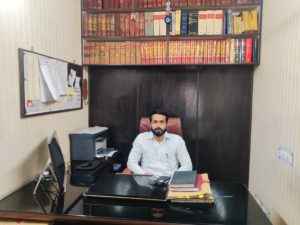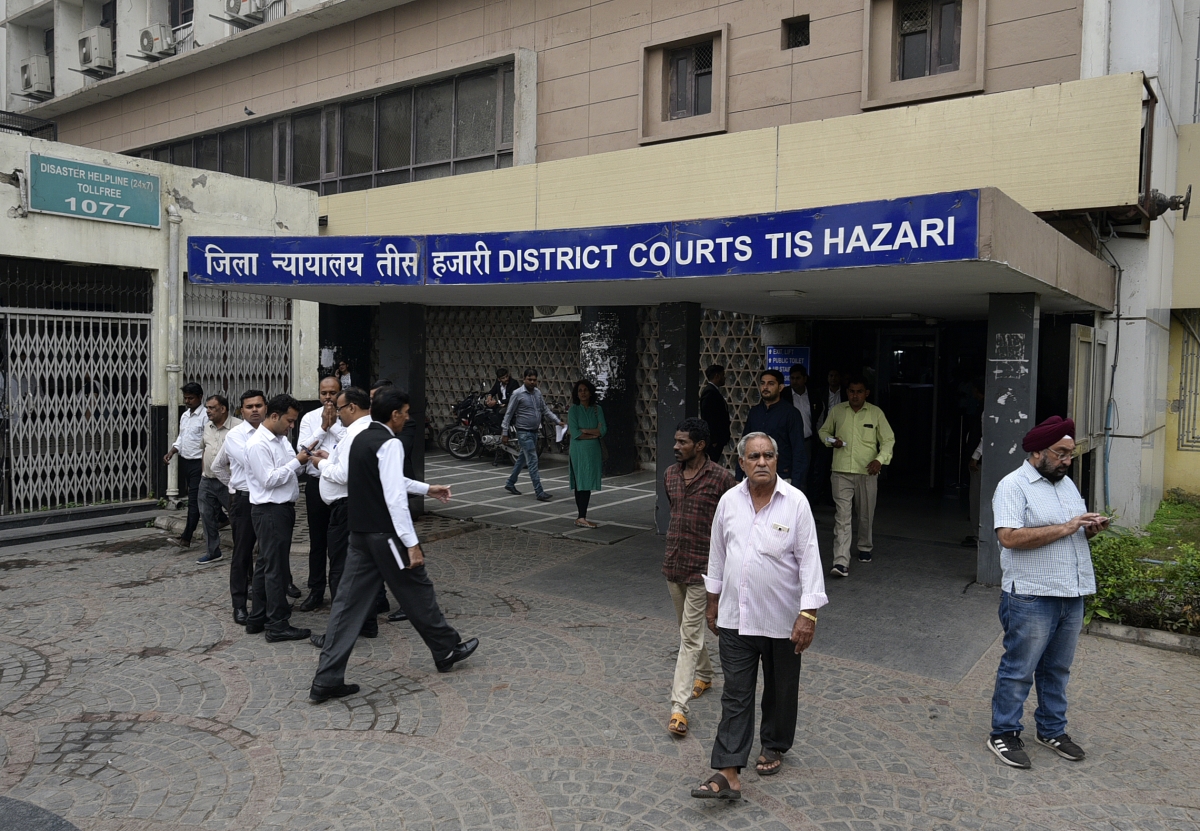Owing to the pandemic, our country’s judicial system faces fresh challenges
District courts have already been known for a backlog of cases and stagnation; people waiting for bail, their matter to be heard, evidence to be collected. On top of these chronic maladies, the Delhi High Court on 21 October came down heavily on the Delhi government for not paying the District Courts its dues. This, apparently, affected its recruitment of staff – the lower courts are suffering because of the inability to function smoothly in online trials.
Paras Gaur, a criminal lawyer at the Tis Hazari Court, says cases have been piling up, with constant delays in justice with a range of issues, from technological problems while carrying out the hearing, public prosecutors not showing up — and one very important aspect, evidence not being collected. We meet him on a weekday when he should be in the courts, but instead he sits in his office, with no hearings for his cases being held.
He sometimes comes to his office at the District Court or stays at home and presents himself online before the court – over Cisco, a platform being used after Zoom was classed by the government as unsafe – with hearings of his cases taking place¹ 2-3 days of the week. But long drawn out cases are nothing new, in fact he has at least 150 of them carrying over from 2018 and 2019.
According to data accessed from the district court website, as of 31 August this year, the total number of cases pending in Tis Hazari Court under the district or additional district judges were a whopping 13,519 cases.
Praja Foundation in its report ‘State of Policing and Law & Order in Delhi’ points out that “90% of total IPC cases for trial and 89% of total SLL cases for trial in 2019 were pending at the end of the year.” Its report on the Capital city went on to show how poor investigation was leading to low conviction, a worrisome “59% of the cases of crime against women and 38% cases of crime against children were acquitted or discharged in 2019.”

Covid-19 has now attacked an already weak system. Gaur says that while he has access to the internet and a computer at home, many lawyers who depend on cases on a day to day basis are ill-equipped. He further adds, “Before Covid-19, I dealt with 2-3 cases every day in court; now it’s hardly one or two cases in two or three days. Online video calls can’t happen every day, we face many glitches. If I submit a bail application today, it will get accepted by tomorrow, then a date will be given for video conferencing, so things take long.”
And despite the fact that cases were prolonged even before the pandemic, he says it wasn’t so bad earlier. “From the previous cases (before Covid) I had applied for bail for 20-30 cases, and then I had new cases of about 15 where the date is still to be put for a hearing.” Cases are taking long and litigants rarely show up, he says.
Anil Tomar, vice president of the Delhi Bar Association, Tis Hazari Courts, believes the backlog of cases, and lawyers being negatively affected are both due to online hearings. “If litigants are not coming or the cases that are to be heard are not getting relief, then why will you pay the fees? Why will you even come to court? Even though unlock has happened, only urgent cases are being heard and in the routine cases only one-fourth of them are being heard. Then there are many times when both parties are not coming for the hearing, this will continue to have an adverse effect on lawyers but not on judges. They are getting their salaries; work is lesser. The people who are affected are daily wage employees, but the government ones are fine.”
Tomar echoes Gaur’s point on the lack of collecting evidence, internet connectivity problems and that all those concerned don’t show up on time. “In online cases at the district level there is no satisfaction. If you talk about arguing a case, say in High Court or the Supreme Court, then everything is already drafted, so even if a technical difficulty may cause disturbance on an online hearing (everything is on paper), but in district court there are many things like evidence is not being taken into account. Litigants won’t be allowed if evidence is not collected, fresh filings may happen but their hearing isn’t happening.”
“In such cases, imagine, it was a matter of a day’s work that your case would have been heard, but now it has been affected for a year, so where has that person got justice? In online cases, district level experience has been very bad, if you look at the number of cases that have gone ahead then it’s a small fraction with 90% stuck, he adds.
Tomar also says that judges are not always on the job. “They don’t want to sit at home, nor at work, they are out somewhere taking video calls, even when traveling inside their car. They just ask for notes to be taken, so nothing meaningful happens.” And while the court proceedings should be between 10 am to 5 pm, with ample time given, he says usually time is wasted waiting, agreeing that judges lose a lot of their time too this way.
He gives his own example, he got a call the day we met for a case to be heard. He was out with none of his notes, so asked the matter to be adjourned. Another lawyer tells us about a case of his getting pushed for hearing for the end of 2021, another for 2021 January (the case began in the early months of 2020).
The lawyers we spoke with believe that physical hearings must start, which will take care of the most important factor — that of pending cases. At the same time it will help lawyers who are finding themselves deprived of income due to the present circumstances and to dearth of fresh cases.
(Cover Image: Credit – Getty)





